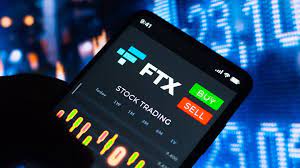A fraction of the billions of dollars missing from the company’s coffers, according to the company tasked with seizing the assets of the defunct cryptocurrency exchange FTX, is $740 million in assets, which have so far been recovered and secured, according to the company in charge of doing so.
The figures were made public on Wednesday in court filings by FTX, which hired BitGo to act as its cryptocurrency custodian just hours after declaring bankruptcy on November 11.
Many of FTX’s clients are most concerned that they won’t ever see their money again. Sam Bankman-Fried, the founder and former CEO of FTX, and his associates lost the company money by placing wagers in Alameda Research, a trading company that was closely related to FTX. According to reports, Bankman-Fried was seeking upwards of $8 billion from new investors to fix the company’s balance sheet.
Bankman-Fried and BitGo CEO Mike Belshe wrote in an email that the incident “confirmed that there is no such thing as a ‘safe’ conflict of interest.”
The value of $740 million is as of November 16. According to BitGo, since that time, the total value of assets that have been recovered and secured has likely surpassed $1 billion.
The funds BitGo was able to retrieve are currently kept secure in South Dakota in “cold storage,” which refers to digital currency kept on disconnected hard drives. According to South Dakota legislation, BitGo offers “qualified custodian” services. In essence, it provides segregated accounts and other security services to lock down digital assets; it is the crypto equivalent of a financial fiduciary.
As the value of bitcoin and other digital currencies has fallen, a number of cryptocurrency businesses have failed this year. Early investigations revealed that FTX workers mixed up assets they were investing in with those they were holding for customers when the company underwent the crypto equivalent of a bank run, which caused FTX to fail.
Belshe asserted that “trading, funding, and custody need to be distinct.”
In addition to bitcoin and ethereum, the assets recovered also include a variety of smaller cryptocurrencies with varying levels of use and worth, like the shiba inu coin.
California-based BitGo offers asset recovery and protection. Following the failure of the cryptocurrency exchange Mt. Gox in 2014, the business was charged with protecting assets. It also acts as the custodian for the assets that El Salvador’s government holds as part of its trial use of bitcoin as legal money.
In addition to a $5 million retainer, FTX is paying Bitgo $100,000 per month for its services.

















